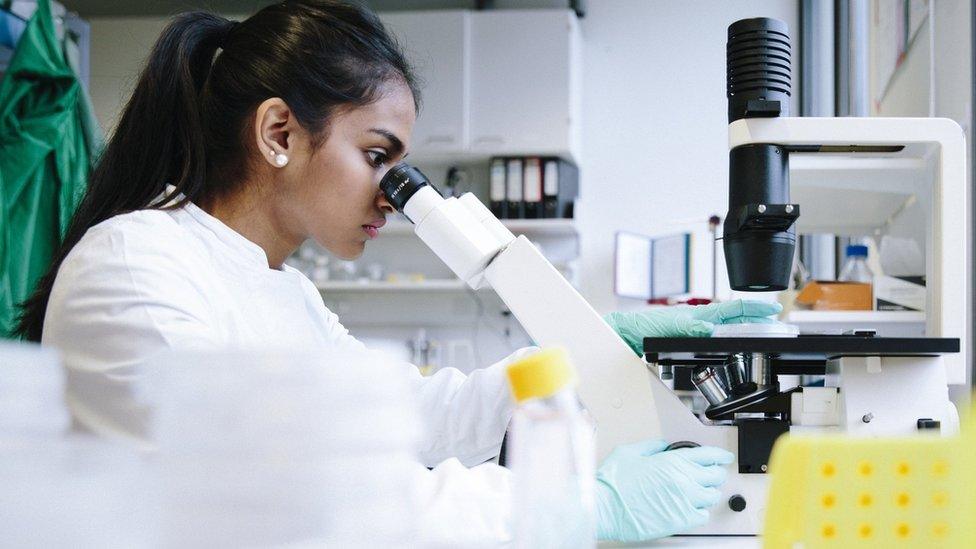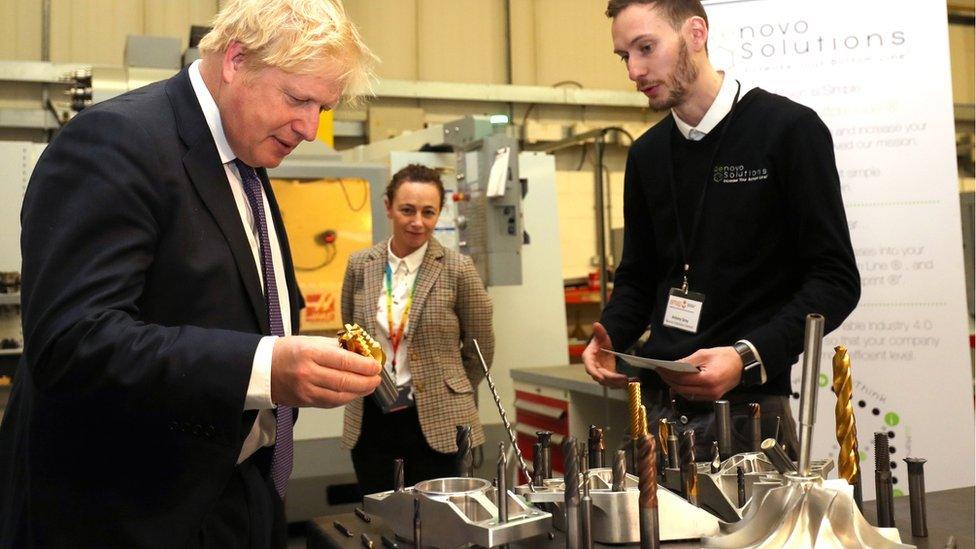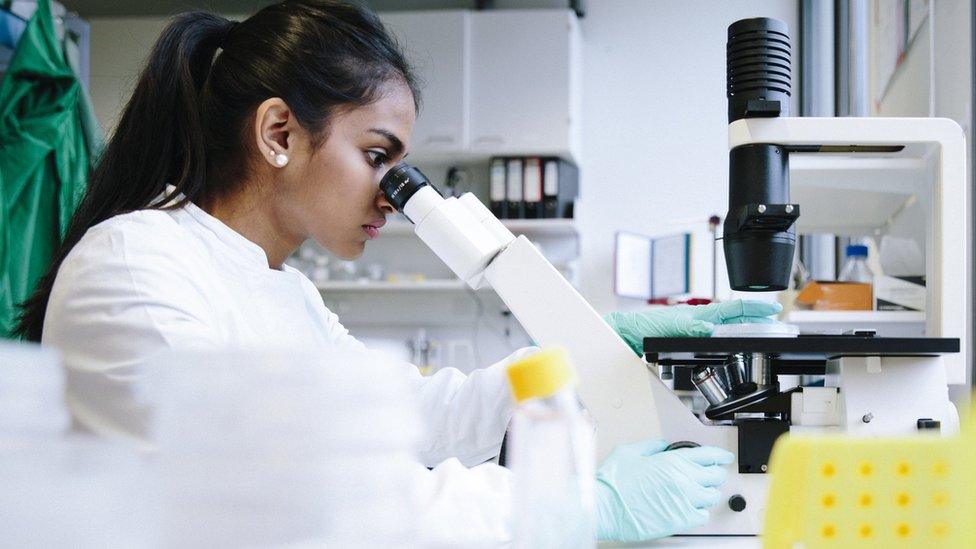MPs say UK research frozen because of Brexit delay
- Published

UK scientists are likely to be "frozen out" of EU research programmes because of delays in Brexit negotiations, according to MPs.
Earlier this month, the EU indicated that the UK's participation in its £100bn research programme was tied to negotiations over Northern Ireland.
The Commons European Scrutiny Select Committee says British science will not recover from "lost opportunities".
Its chair, Sir Bill Cash, said that the delay was damaging UK businesses.
"It's been the best part of a year and British research institutions remain frozen out of key projects and funding despite agreement on participation. With each passing day, the opportunities are missed, British institutions are left high and dry while science marches on without them and the returns on our financial contribution edge lower," said Mr Cash.
"This needs to be addressed swiftly, so we're calling on the government to lay out the steps it is taking to ensure UK participation is formalised."
The EU's Horizon Europe programme brings together researchers from industry and academic research institutions. The projects range from fundamental research to tackling societal issues, such as combating climate change.
The UK's continued participation in the EU's Horizon programme was agreed in principle just before Christmas in the Brexit withdrawal agreement. But the signing off of a formal agreement on the UK's associate membership has dragged on for months.

Boris Johnson wants UK scientists to have the closest possible relationship with EU researchers
There have been growing fears that scientific collaboration had become a bargaining chip tied to negotiations over the Northern Ireland Protocol, which keeps Northern Ireland in the EU's single market after Brexit. Earlier this month, the EU's research commissioner, Mariya Gabriel, seemed to confirm these suspicions when she told the R&D policy news website sciencebusiness.net: "transversal issues need to be tackled first".
The delay is creating problems, because funding cannot be released to UK collaborators until there is a formal agreement. If it becomes apparent that agreement will take many more months, EU researchers will not include UK scientists in their projects.
Prof James Wilsdon, who is the director of the Research on Research Institute at the University of Sheffield, points to estimates that uncertainties arising from Brexit have already led to the UK research to missing out on £1.5bn of research funding since 2016.
"This number is rising fast, as Horizon Europe, the world's largest and most successful co-funding scheme, gets into full swing, and the UK is stuck outside.
"Unless this is resolved soon, the fear must be that the UK drops out, or is locked out, by default rather than design, as the rest of Europe marches on without us. This would be a tragedy for both sides, and would leave the UK's ambitions to be a scientific superpower in tatters."
The EU's Earth mapping effort, Copernicus, is similarly affected by the delay. This affects UK aerospace companies wanting to bid for contracts to manufacture equipment for Copernicus because the contracts are dished out as a proportion of the contribution from member states. Because of the impasse, British firms can't contribute and so, according to the Select Committee report, will be "frozen out".
MPs on the Committee said that the delay raised concerns about value for money of participation in EU programmes. The UK's contribution to the Horizon Europe programme is expected to be about £2.1bn a year.
The President of the UK's Royal Society, Prof Sir Adrian Smith, called for negotiators to stop treating the issue of research funding as a bargaining chip.
"Last Christmas, all sides agreed that the UK would associate to Horizon Europe," he said.
"Nearly a year on, the association agreement is still not signed, having become entangled in other issues. Vital research that benefits all nations will be delayed unless all sides look at Horizon Europe on its own merits and get the deal signed."
Follow Pallab on Twitter, external
Related topics
- Published27 February 2020

- Published16 October 2019
